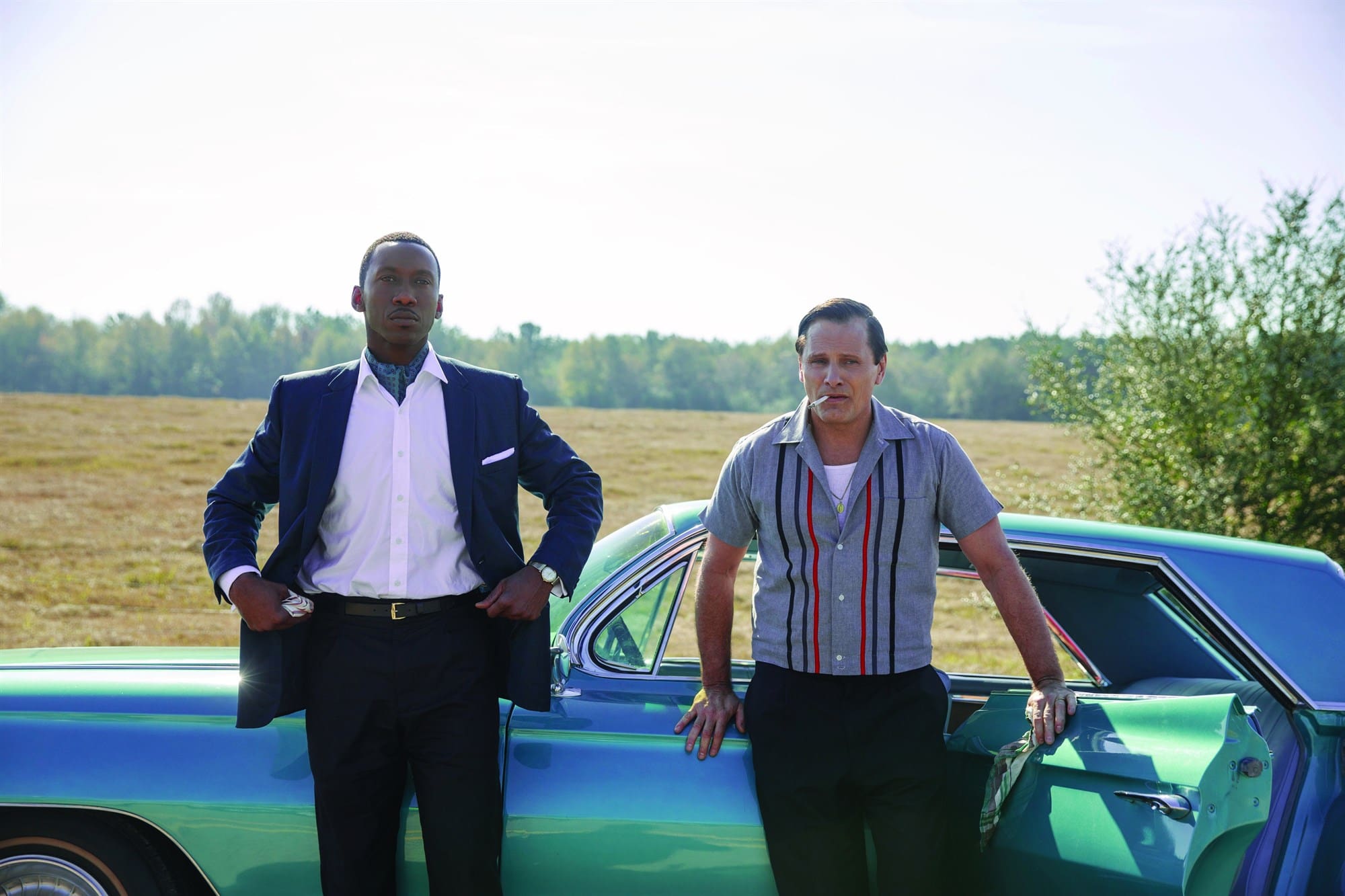
Written by Tom Moore
Green Book takes its viewers through a tough, yet heartwarming journey through the 1960’s American South as two men learn the cultural struggles the other goes through on a daily basis.
The film follows an Italian-American bouncer, Tony (Viggo Mortensen), as he picks up a job for a world-class African-American musician, Dr. Don Shirley (Mahershala Ali), to drive and protect him on a tour through the South. The two struggle to bond at first as Tony’s working-class manners and narrow cultural views clash with Dr. Shirley’s more high-class attitude and well-educated background. However, as the two men talk more, they begin to understand and care for one another even though everyone else in the towns they drive through feels different.
The biggest highlights Green Book has to offer are easily the stand-out performances from both Mortensen and Ali. Mortensen captures Tony’s blunt thought process and dialogue perfectly and it leads to plenty of funny and endearing moments. Whether it’s talking to Dr. Shirley about his diction or saving Dr. Shirley from bar patrons who are only interested in beating him to a pulp because of his race, Mortensen makes Tony feel genuine and realistic rather than just being a character.
Ali shines bright with a powerful performance that shows Dr. Shirley’s complexity when dealing with his own internal struggles. There’s some great moments that showcase his struggle to be seen as more than just black by rich, white audiences who wouldn’t appreciate him if he weren’t on stage and to not be accepted by people of his own race because they see him as white. It’s a really interesting struggle to see and the film touches on it excellently by showing how white people wouldn’t allow him to use the same bathroom or eat in the same restaurants–even though he could play for them in the same room–and how the black communities around them would mock him just for wearing a suit.
Now, with all of these great characters comes some great messages and discussions that can unfortunately be lost sometimes in its humor. Often times, I found myself highly engaged with the conversations that Tony and Dr. Shirley would have, with the message or idea it presented comfortably in my head—only to have it be lost because a joke was made shortly after.
One moment Tony and Dr. Shirley could have an important discussion about Tony’s assumptions that Dr. Shirley likes a certain kind of music or food because he’s black, the next a joke is made and the point feels a little less impactful and gets lost in the laughter. It’s possible the film goes this route to express its messages in a brighter way, but it’s done so much that I was left struggling to remember what the film’s big points were.
The film does, however, have some solid pacing as the music really helps move the film along and makes it feel like the audience is on a road trip. The driving music feels right at home with the 1960s aesthetic and makes the film feel incredibly relaxing to watch and doesn’t distract viewers from what Tony and Dr. Shirley are talking about.
As a whole, Green Book is a truly authentic trip through cultural difference between two truly complex characters. The performances from Mortensen and Ali could easily get them some awards buzz when the time comes and it wouldn’t be shocking to see the film get more praise. It desires to change people’s hearts and with its easy-going mentality, complex characters, and relevant messages, it could actually accomplish that.
Ratin: 8/10


Comments are closed.